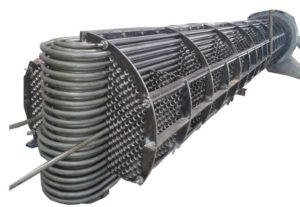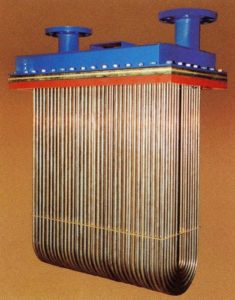We are continuously testing and improving our systems with the help of known partners in the shipping industry.
Applications in the maritime sector include:
- Protection against bio-fouling and scaling of heat exchangers:
- box coolers
- tube coolers
- plate coolers
- Treatment of sanitary water systems (tanks, pipes, calorifiers)
- Protection of internal and external marine structures against:
- algae
- barnacles
- mussels
- microbiologically influenced corrosion (MIC)
- reduction of bacteria growth (i.e. Legionella pneumophilia, E. Coli, ..) in cooling or sanitary waters
- Increasing efficiency in membrane filtration and desalination plants (optimalising flux and MTBF)
- Reducing BWT chemical usage and byproducts
- Fuel tank and filter treatment against the diesel bacteria. (avoiding slime/sludge formation and clogging in injectors)
- Enhancing active coal filtration to improve adsorption.




